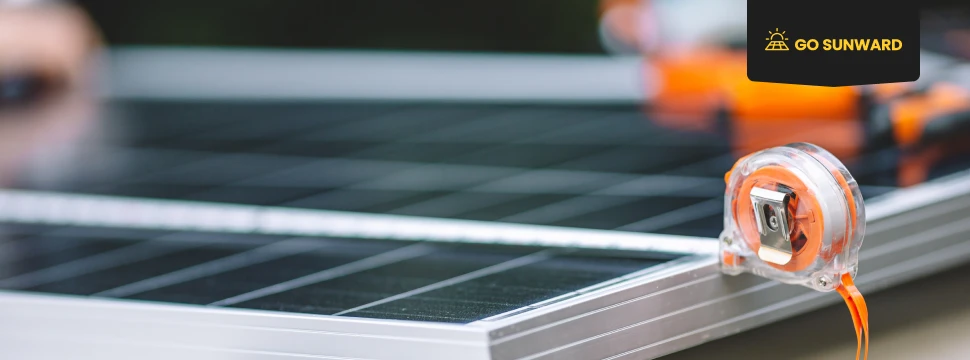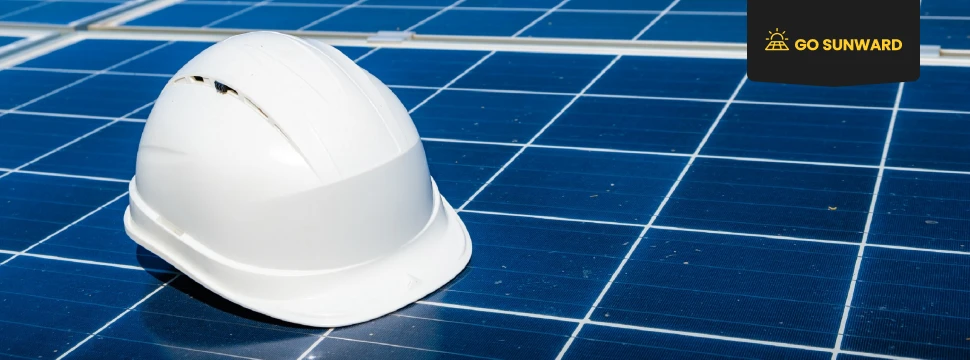Are Solar Panels Worth It?
Solar panels have garnered significant attention over the last decade as a clean and renewable energy source. But this surge in interest raises a fundamental question: Are solar panels worth it? In this article, we will explore the financial and environmental aspects of solar panels to provide you with a comprehensive answer to this question. We’ll do our best to give you the best solar advice out there ☀️
This article will consider the costs, benefits, maintenance, and other factors associated with solar panel installations, giving you the information needed to decide whether this technology is for you.
Are Solar Panels Worth It? The Benefits
First, let’s explore the main pros of switching to solar power for your energy needs. These benefits mainly centre around environmental factors, saving money, and gaining energy independence.
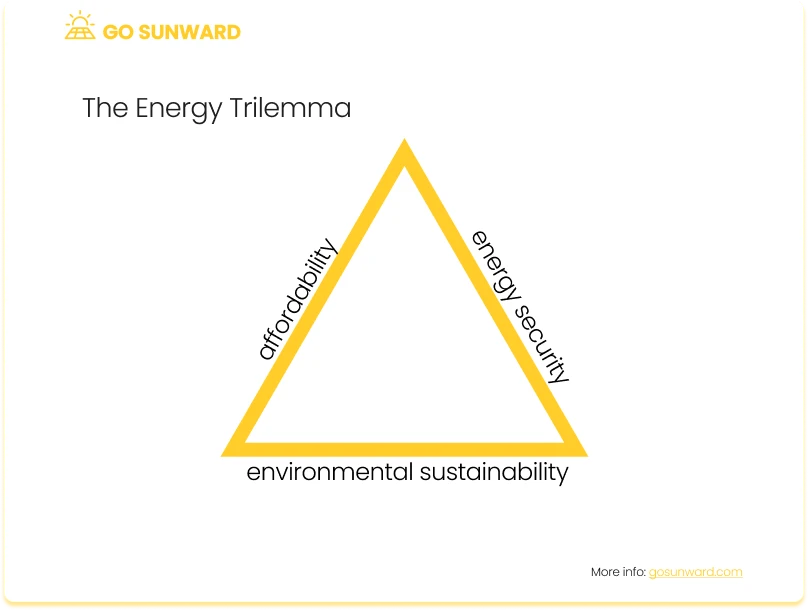
Environmental Benefits
Unlike conventional fossil fuels, solar energy is both clean and renewable. Solar panels generate electricity or heat without emitting any greenhouse gases into the atmosphere, such as CO2. This characteristic makes solar power, along with other renewable energy sources, a potential game-changer in our efforts to combat global climate change.
While lifecycle emissions from solar panels are not zero emissions, they are significantly lower than emissions from fossil fuels and the technology has a generally lower carbon footprint. Lifecycle emissions of solar panels include production, transportation, installation, and disposal. Over a solar panel’s lifespan (25 to 30 years), it offsets CO2 emissions compared to fossil fuel electricity. The “carbon payback period” is relatively short, with emissions-free electricity delivered for decades.
Furthermore, by harnessing the power of solar panels to generate electricity or provide heating, individuals, businesses, and policymakers can effectively diminish their dependency on fossil fuels and counterbalance their energy consumption. As solar energy usage increases, the reliance on fossil fuel-based electricity decreases. This deliberate shift leads to a tangible reduction in CO2 emissions (read how solar panels reduce CO2 emissions here), contributing positively to the global fight against climate change.
Other environmental benefits include solar power decreasing air pollutants, reducing the effects of urban heat island and boosting water conservation. For more information on how solar power can combat climate change, click here.
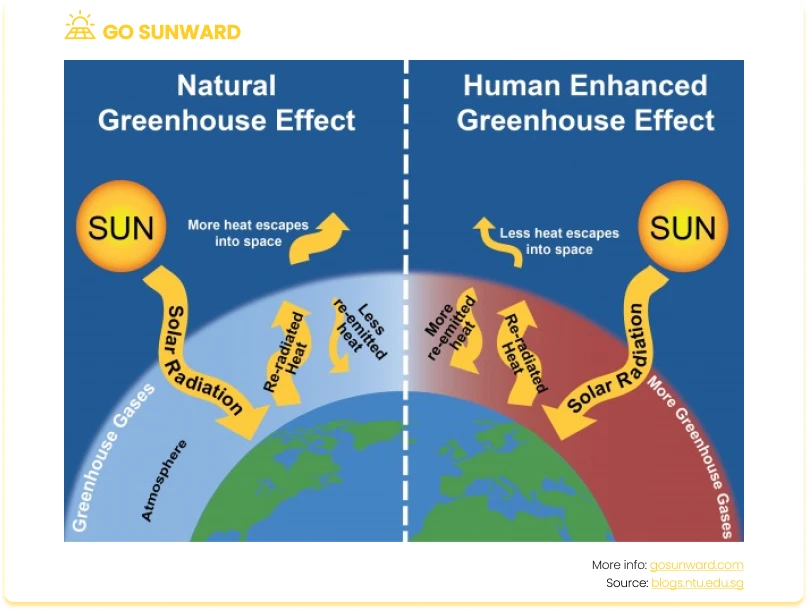
Cost Savings
While the upfront costs of getting solar panels installed can be significant, transitioning to solar brings long-lasting financial advantages and solar savings that might even eliminate monthly electric bills. Many areas also offer incentives, tax credits, and rebates to help with the initial installation costs, making solar power a more affordable choice.
Investing in solar power offers excellent returns on investment (ROI) over the system’s life. Advances in technology and decreasing costs mean you can recoup your initial investment rapidly and enjoy financial benefits from your solar energy system.
Energy Independence
Solar power gives homeowners and businesses control over their energy generation, boosting financial stability and energy security. By using solar cells and panels to capture sunlight, people and companies can reduce their reliance on external energy sources. This means they are less affected by supply interruptions and global factors that can lead to unpredictable energy costs.
When combined with energy storage solutions like batteries, solar power systems become even more resilient. These batteries store extra solar energy during sunny periods and use it during cloudy days or power outages, further improving energy security and decreasing dependence on the grid.
Are Solar Panels Worth It? The Financial Considerations
The installation of solar panels and the required infrastructure presents a significant obstacle, primarily due to the initial expenses involved. Generally, a solar panel system can range from a few thousand dollars for a small residential setup to tens of thousands of dollars for a larger, high-efficiency system equipped with energy storage. On average, a typical residential solar photovoltaic installation within the United States might run anywhere from $15,000 to $25,000 before factoring in incentives and rebates.
Nonetheless, governmental bodies and local authorities frequently extend financial incentives, such as tax breaks, rebates, net metering, feed-in tariffs, and grants, to encourage the adoption of solar energy. These measures help alleviate some of the financial burdens associated with solar power adoption.
Moreover, the costs linked to renewable energy technologies, particularly solar power, have substantially reduced in recent decades, making them an increasingly cost-effective option for electricity generation. Our research suggests that this trend will persist throughout the next decade, diminishing the challenge posed by exorbitant costs. Click here to find out more about solar panel prices.
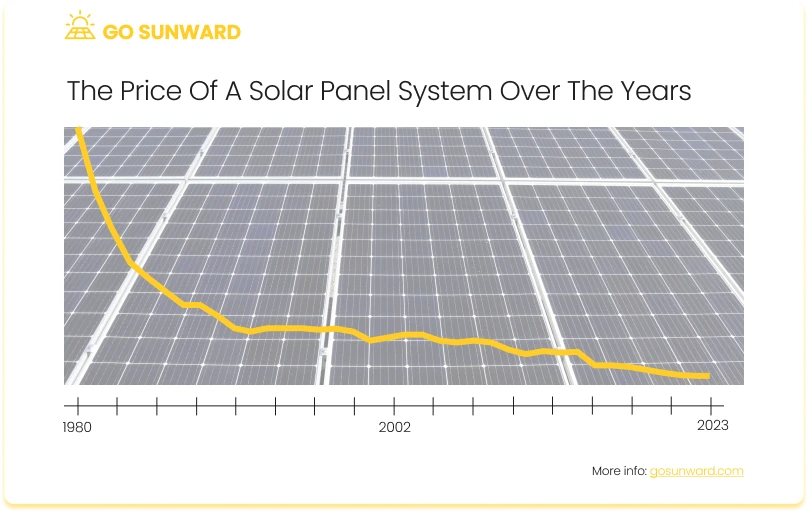
Are Solar Panels Worth It? Maintenance and Durability
Minimal Maintenance Required for Solar Panels:
One of the notable advantages of solar panels is their low maintenance requirements. Solar panels are built to withstand various weather conditions and require minimal attention to ensure their longevity and efficiency. The primary maintenance task is regular cleaning to remove dust, dirt, leaves, and bird droppings, which can accumulate on the panels and reduce their ability to absorb sunlight effectively. Cleaning can typically be done with water, a soft brush, and mild detergent. Homeowners often take on this task themselves, making it a cost-effective maintenance measure. Alternatively, professional cleaning services are available but may come with a modest fee.
Typical Lifespan of Solar Panels and Associated Warranties:
Solar panels are designed to last for a long time. On average, solar panels have a lifespan of 25 to 30 years or more. This means that once installed, they can continue generating electricity for decades, boosting their value.
Additionally, many reputable manufacturers offer warranties that cover their solar panels for 20 to 25 years. These warranties typically guarantee that the panels will maintain a certain level of performance over the specified period. In case of any issues or a significant drop in performance, the manufacturer may replace or repair the panels at no cost to the owner.
Are Solar Panels Worth It? Considerations for Installation
When planning a solar panel installation, several key factors must be considered to ensure optimal performance and efficiency. The below information serves as a comprehensive guide to installation considerations:
- Location : Choosing the right location for solar panels is critical. You should install solar panels in a spot that receives maximum sunlight exposure throughout the day. This often means placing them on a south-facing roof or in an area with minimal shading from trees or nearby buildings.
- Shading : Shading can significantly impact the efficiency of solar panels. It’s essential to assess the shading patterns in the chosen location and take measures to minimize shading during peak sunlight hours.
- Orientation : Solar panels should be oriented correctly to capture the most sunlight. In the Northern Hemisphere, panels should generally face south, while in the Southern Hemisphere, they should face north. The tilt angle should also be optimized based on the latitude of the installation site.
Selecting a reputable and experienced solar panel installer is crucial for a successful installation. A qualified installer will assess your specific needs, recommend the right system size, and ensure that the installation complies with local regulations and safety standards. They will also assist with paperwork related to incentives and permits, ensuring a smooth and trouble-free installation process. Checking references and reading reviews can help you identify a reliable installer in your area.
Are Solar Panels Worth It? Are There Any Downsides To Consider
Solar panels are indeed worth the investment. While the initial costs may seem daunting, the long-term benefits far outweigh them. Solar panels not only help reduce your carbon footprint and promote a sustainable future but also lead to significant financial savings over time. By harnessing the power of the sun, you can reduce or even eliminate your monthly electricity bills, increasing your financial resilience.
That said, there are some downsides that are worth noting before you embrace the technology.
Intermittent Energy Production: Solar panels depend on sunlight, meaning they only generate electricity during the day and are affected by weather conditions, such as clouds. Energy storage solutions like batteries can mitigate this issue but come with additional costs.
Space Requirements: Solar panels require a certain amount of space for installation. Not all properties have sufficient roof or ground space for an effective solar panel system.
Aesthetic Concerns: Some people find solar panels unattractive or incompatible with the aesthetics of their homes or buildings, which can be a barrier to adoption.
Environmental Impact of Production: The manufacturing process of solar panels involves the use of certain materials and chemicals, which can have environmental implications if not managed responsibly.
Inconsistent Policies and Incentives: Government incentives, tax credits, and rebates for solar panels can vary by region and may change over time, leading to uncertainty for potential adopters.
Depreciation of Equipment: Solar panels and inverters typically have a finite lifespan, ranging from 25 to 30 years. As these components age, their efficiency may gradually decline, resulting in reduced energy output compared to their initial years of operation. This decrease in efficiency can impact the return on investment and the overall cost-effectiveness of the solar energy system.
Conclusion
Throughout this article, we’ve examined the benefits of solar panels, including their positive impact on the environment by reducing greenhouse gas emissions and promoting clean energy. We’ve discussed the financial aspects, highlighting long-term savings and the potential for government incentives to offset upfront costs. Additionally, we’ve delved into maintenance requirements and installation considerations, as well as summarised some of the downsides of the technology that shouldn’t be overlooked.
As you assess whether to embrace solar energy, we encourage you to weigh the financial, environmental, and long-term benefits carefully. Consider the potential for reduced energy bills, lower reliance on fossil fuels, and the positive impact on the environment. Additionally, take advantage of government incentives and explore financing options to make the transition to solar power even more accessible.
In the end, the decision to invest in solar panels is not only a wise financial choice but also a responsible step toward a greener, more sustainable global energy system.

